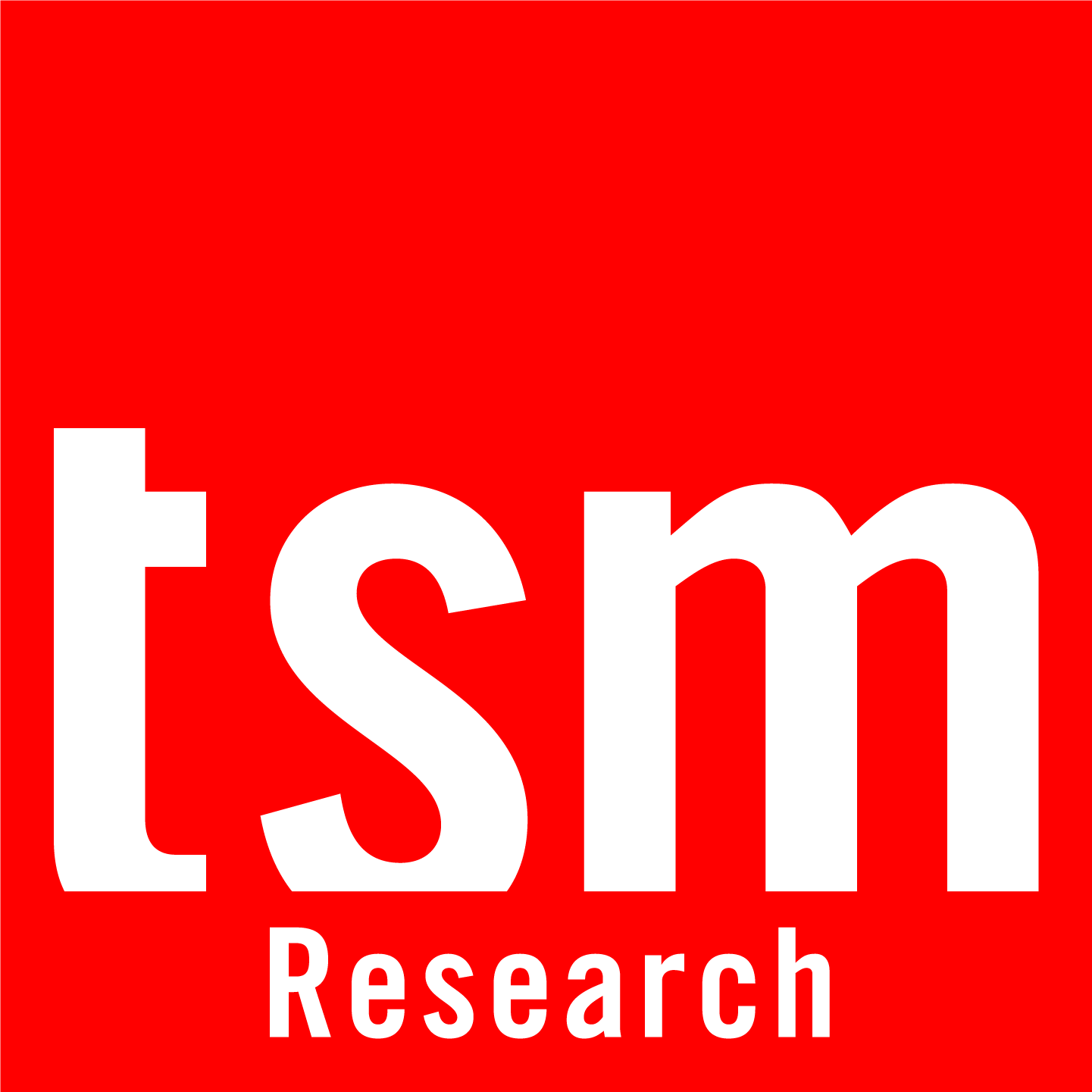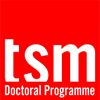240 ECTS
195h
Programme / Syllabi
Core courses
Advanced quantitative methods
PRESENTATION AND INTENDED LEARNING OUTCOMES
A) Course description
The course will cover empirical techniques that form the basis for quantitative research in management. The module is therefore design to introduce students to some of the core issues associated with empirical research through the review of some recent trends in research. The module will comprise a mixture of faculty-led lectures, interactive student-led presentations, and discussions.
B) Upon completion of the course, students should be able to:
- Identify tools and resources: Data, statistical packages, tutorials and doctoral seminars, MOOC
- Compare different quantitative research methods for designing a research project in business and management
- Survey concrete scientific application of the quantitative method in a top-tier peer-reviewed journals
- Point out possible challenges, in particular challenges for the validity, indentification, causality, diff-in-diff
- Specify prerequisites, conditions, guidelines for implementation
RESEARCH SKILLS
- Knowledge and intellectual abilities: Research methods; Academic literacy and management; Problem-solving.
- Personal effectiveness: Integrity; Perseverance; Responsibility; Reputation.
- Research governance and organisation: Ethics; Research strategy; Project planning and delivery.
- Engagement, influence and impact: Team working; Leadership; Communication methods; Communication media.
Advanced qualitative methods
PRESENTATION AND INTENDED LEARNING OUTCOMES
A) Course description
A researcher needs to master the use of several methodologies in order to deeply understand studies in their field and to choose and to employ the most accurate method to answer their addressed research questions. The purpose of this course is to develop participants’ ability of reflective stance, supported by theory, and to be able to use qualitative research design and tools.
This course will cover four main topics: (1) Issues and challenges of qualitative inquiry in management research, (2) Core methods and practicalities of qualitative inquiry in management research, (3) Qualitative data analysis, (4) Ethical research practice. The pedagogical approach will be based on active learning. Students will have to read research articles before some of the classes. This material will then be discussed and analyzed collectively. Participation in the course is required and based on the quality and quantity of discussion contributions. The final assessment consists in a written final examination related to a previous exercise.
B) Upon completion of the course, students should be able to:
- Identify and formulate appropriate qualitative research questions and interview questions
- Analyze the main qualitative research methods
- Assess different styles of presenting qualitative research findings
- Develop an interpretive understanding of data collected
- Collect and use qualitative data
RESEARCH SKILLS
- Knowledge and intellectual abilities: Research methods; Language; Problem solving; Argument construction.
- Personal effectiveness: Self-reflection; Self-conficence; Time management; Integrity.
- Research governance and organisation: Ethics; Research strategy; Project planning and delivery.
- Engagement, influence and impact: Collegiality; Communication media; Communication methods.
Intellectual property rights
PRESENTATION AND INTENDED LEARNING OUTCOMES
A) Course description
This session will introduce students to intellectual property rights and more especially to main principles of copyright and application to the thesis.
B) Upon completion of the course, students should be able to:
- Survey the intellectual property law: Interests, justifications, composition
- Analyze rights of the authors
- Describe main principles of copyright and application to the PhD thesis
RESEARCH SKILLS
- Knowledge and intellectual abilities: Academic literacy; Intellectual insight.
- Personal effectiveness: Integrity; Reputation.
- Research governance and organisation: Ethics; Appropriate practice.
- Engagement, influence and impact: Global citizenship.
Track specific courses
Advanced methods
PRESENTATION AND INTENDED LEARNING OUTCOMES
A) Course description
Building on the qualitative and quantitative methods courses in the MSc, this module aims at pushing students to use more sophisticated research designs for their projects. To this end, the course will highlight advanced diary and survey design issues, Structural equation modeling and different methods to analyze moderated mediation, advanced case studies methodology and longitudinal process approaches. Mixed methods approaches will also be discussed. All methods learning will be directly applied.
B) Upon completion of the course, students should be able to:
- Critically reflect on and develop designs using longitudinal questionnaires and diaries
- Differentiate and critique the different methods to analyze mediation, moderation, moderated mediation
- Prepare SEM analyses in MPlus and critique the quality of the SEM
- Develop process-oriented research design specific to your own project
- Integrate advanced qualitative methods into your own projects
- Appraise and propose mixed methods research designs
RESEARCH SKILLS
- Knowledge and intellectual abilities: theoretical and practical research methods, analysing, critical thinking
- Personnel effectiveness: integrity, commitment to research
- Research governance and organization: research strategy, risk management, ethics
- Engagement, influence, impact: collaboration (includes feedback giving to peers), communication methods
Hot topics in HR and OB
PRESENTATION AND INTENDED LEARNING OUTCOMES
A) Course description
In order to contribute to the literature and to develop needed and relevant research or to address significant issues or gaps, researchers have to pay attention to the most recent theoretical and empirical evolutions in their field(s). In this vein, this course aims at studying research articles which offer novel, advanced or counterintuitive insights on important OB topics. This course deals with the following topics: unethical leadership, health, temporal issue in OB and recent development on work relationships. It relies on presentation of articles by students and reflects principles of flipped classroom insofar as these presentations will raise stimulating thinking and debate between students and the instructor. The presentation outlines are given in the classroom.
B) Upon completion of the course, students should be able to:
- Describe and evaluate a research in terms of its originality and novelty in the OB field
- Apply theoretical insights and empirical methods of the research to their own research topic
- Develop a critical thinking and discuss a research paper in terms of novelty, originality and potential for research based on the theoretical and empirical contributions of the research
- Trigger constructive debates with peers and researcher about key insights raised by the research
RESEARCH SKILLS
- Knowledge and intellectual abilities: cognitive abilities (analyzing, synthesizing, critical thinking) and creativity (intellectual insights, innovation, intellectual risk) (RS1)
- Personal effectiveness: personal qualities (RS2)
- Engagement, influence and impact: working with others (RS4)
Writing, Reviewing and Publishing
PRESENTATION AND INTENDED LEARNING OUTCOMES
A) Course description
Writing and publishing are at the core of what researchers do. This course introduces students to the practical aspects of the publication process and the role that this process may play in their academic careers. In the dedicated writing classes students will bring their own original project, have the opportunity to progress on this project and receive individualized feedback. The course also raises awareness of the systemic and ethical aspects of the publication and review system as we know it.
B) Upon completion of the course, students should be able to:
- Examine and reflect on your own writing style, strengths and weaknesses in general but also in different types of written product
- Develop writing skills through working on a specific paper
- Discriminate between different writing strategies and judge when they may be useful for you
- Recognize the process that research goes through before being published in peer reviewed journals
- Practice the role as reviewer and reflect on how you yourself can contribute to the development of research as a reviewer
- Formulate best practices in the review process and become aware of ethical pitfalls in the review process and how to avoid them
- Critique the publication process as we currently know it. Reflect on how these issues may affect you personally and how you may contribute in your academic career to improving the publication process of the field of management
RESEARCH SKILLS
- Knowledge and intellectual abilities: critical thinking, argument construction, intellectual risk
- Personnel effectiveness: self-reflection, responsibility, commitment to research, career management
- Research governance and organization: appropriate practice
- Engagement, influence, impact: team working, communication methods, pubication, society
Research training seminars
PRESENTATION AND INTENDED LEARNING OUTCOMES
A) Description
These seminars are open to all students from TSM-DP 2nd year. The purpose of this module is to provide students with a broadly based overview of current research skills to write your PhD dissertation.
B) Upon completion of the course, students should be able to:
- Identify mobility grants
- Discover the international job market conference
- Compare academic posters and analyse poster sessions
- Design a poster and resources to help with poster design
- Improve networking skills
RESEARCH SKILLS
- Knowledge and intellectual abilities: Inquiring mind; Argument construction
- Personal effectiveness: Networking; Career management; Responsiveness to opportunities
- Research governance and organisation: Funding; Research strategy; Appropriate practice
- Engagement, influence and impact: Communication methods; Communication media; Collegiality
Teachers' pedagogical practices
PRESENTATION AND INTENDED LEARNING OUTCOMES
A) Description
It is a requirement of TSM that all PhD students who undertake any teaching duties should have attended the teachers' pedagogical practices which is designed for Postgraduate Teaching Assistants. The aim of this workshop is to address some of the basic skills and understanding teaching assistants will need for their work. It assumes that participants have little or no previous teaching experience.
B) Upon completion of the course, students should be able to:
- Draw on an inventory of best experiences
- Review best practices with senior instructors
- Diagnose recurring pedagogical issues
- Role-play a 30-minute lecture
RESEARCH SKILLS
- Knowledge and intellectual abilities: Argument construction; Innovation
- Personal effectiveness: Career management; Continuing professional development; Reputation; Integrity
- Research governance and organisation: Ethics; Appropriate practice
- Engagement, influence and impact: Teaching; People management; Mentoring; Influence and leadership; Communication methods






